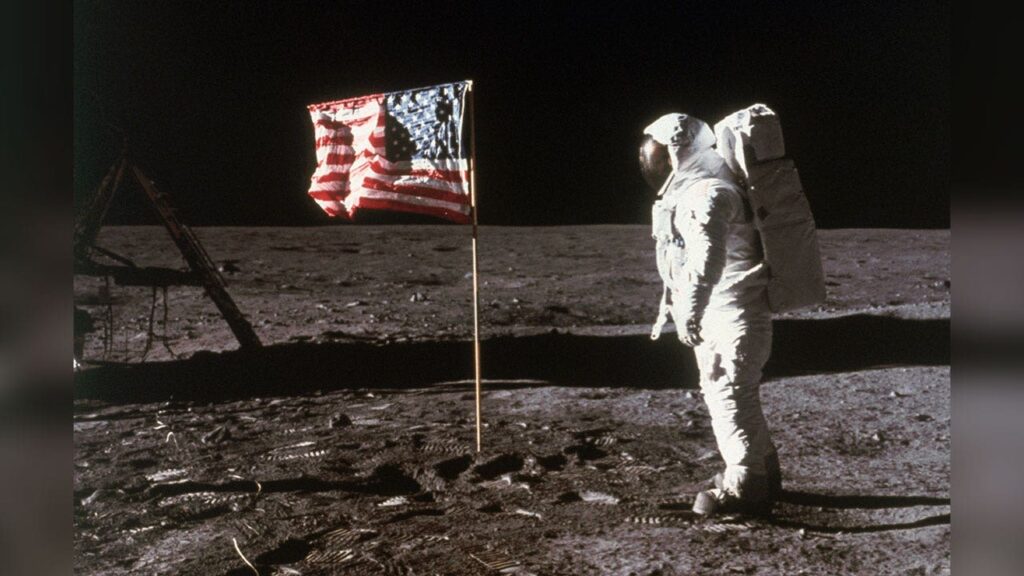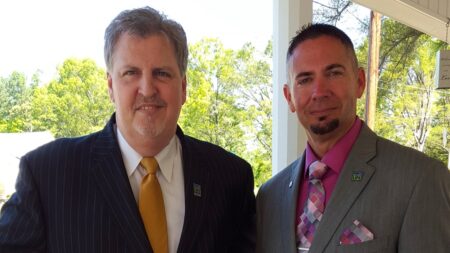On the 56th anniversary of the historic Apollo 11 mission, legendary astronaut Edwin Eugene “Buzz” Aldrin Jr. reflected on the monumental accomplishments of that mission, particularly remembering the significant moment when the lunar module, known as Eagle, successfully landed at Tranquility Base on the Moon. Aldrin, who is now 95 years old, was the second human to walk on the lunar surface, following mission commander Neil Armstrong, while Michael Collins remained in orbit aboard the command module, Columbia.
In a heartfelt post shared on X, Aldrin quoted the momentous words that marked their landing: “Contact light, engine stop.” He recounted how the Eagle touched down at 2:56 UTC on July 20, 1969. Just hours later, both Aldrin and Armstrong made their way onto the Moon’s surface. Aldrin’s reflective post not only highlighted the gravity of that occasion but also pointed toward the dedicated teamwork and years of preparation that made the lunar landing possible. He noted that the achievement was the result of “years of incalculable effort, commitment, and teamwork,” emphasizing the collective endeavor behind one of humanity’s greatest achievements.
As he shared his memories, Aldrin invoked the powerful words of President John F. Kennedy, who had famously challenged the nation to reach the Moon. Aldrin recounted Kennedy’s speech delivered at Rice University in September 1962, in which the president articulated the aspiration to go to the Moon “not because they are easy, but because they are hard.” Aldrin resonated with these sentiments, reinforcing the collective determination and courage that characterized the Apollo 11 mission and the larger space program. The mission was more than a personal triumph; it served as a testament to human ingenuity and perseverance.
The inspiring nature of Kennedy’s speech set the stage for a national movement that sought to harness collective human energies and skills in pursuit of ambitious goals. Kennedy highlighted how space represented new hopes for knowledge and peace, and he asked for God’s blessing on the “most hazardous and dangerous and greatest adventure on which man has ever embarked.” Aldrin revisited those sentiments in his reflections, underlining the profound significance of their journey—not just for the United States, but for all of humanity.
In his concluding remarks, Aldrin expressed pride and gratitude, honoring the countless individuals whose efforts contributed to the success of the Apollo 11 mission. He celebrated the unity of purpose that drove the mission’s planning and execution, stating, “I couldn’t be prouder to have completed this mission with the hundreds of thousands of people that helped get us to the moon and back home.” Aldrin’s appreciation extended beyond the mission itself—he also offered his blessings to the United States and humankind as a whole.
Additionally, Buzz Aldrin shared a heartwarming personal moment, indicating that he and his wife, Anca, received a special blessing from Pope Leo XIV. Aldrin described the encounter with gratitude, noting that it was particularly touching to receive such recognition on the significant anniversary of the Apollo 11 landing. He wrote about their prayers for good health, long life, and prosperity for all of humankind, underscoring a spirit of hope and unity that transcends national boundaries.
The Apollo 11 mission, notable for landing the first men on the Moon, remains a pivotal moment in human history, fulfilling a dream that has existed for centuries. Armstrong first set foot on the lunar surface at 9:56 p.m. ET on July 20, 1969, followed by Aldrin just 19 minutes later, sealing their places in history. Remarkably, Aldrin is the only surviving member of the three-man crew from Apollo 11 today, making his reflections on their renowned mission even more poignant. His gratitude, reverence for teamwork, and commitment to sharing this historic legacy serve as an enduring reminder of the power of human aspiration and achievement.











